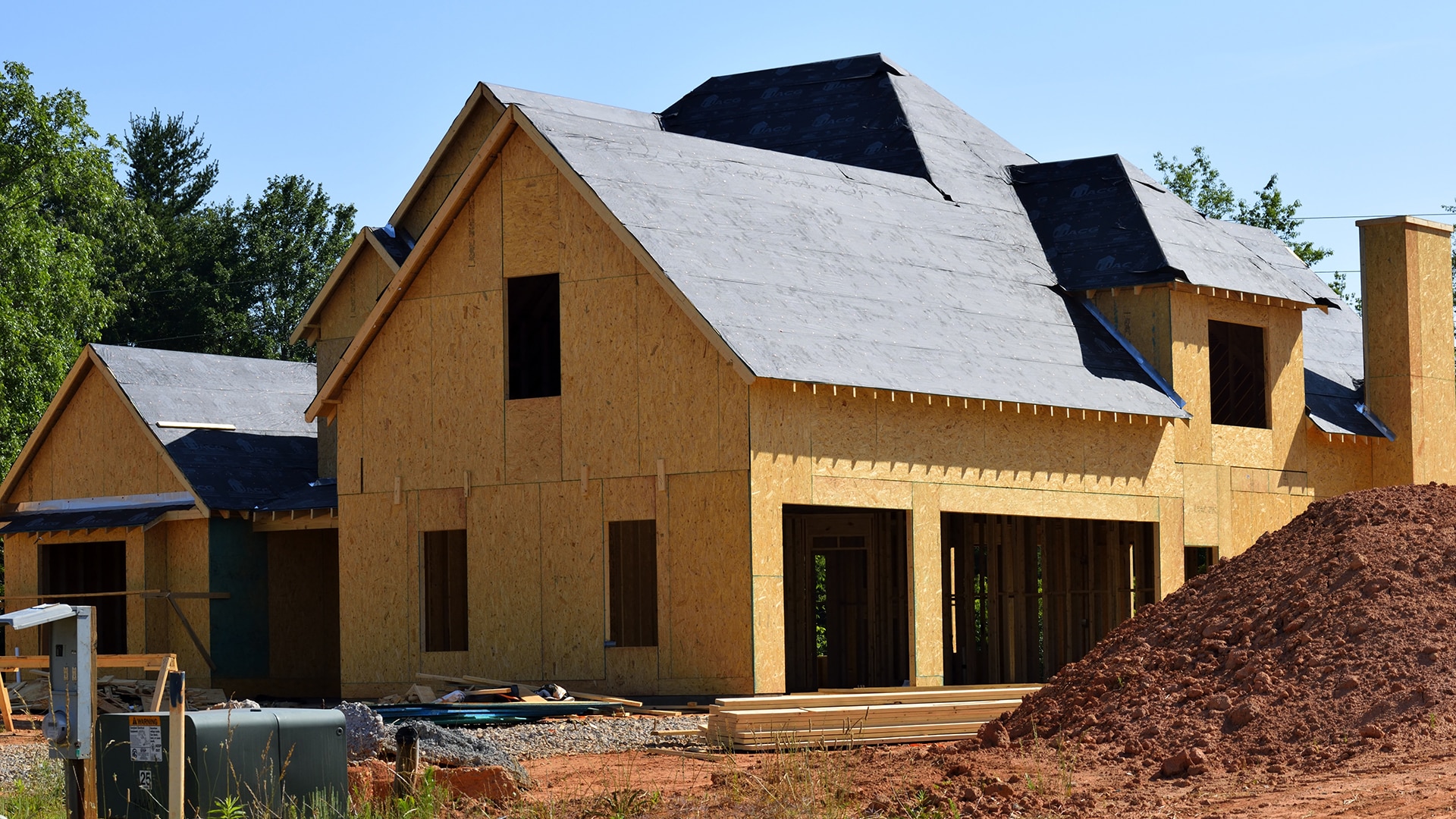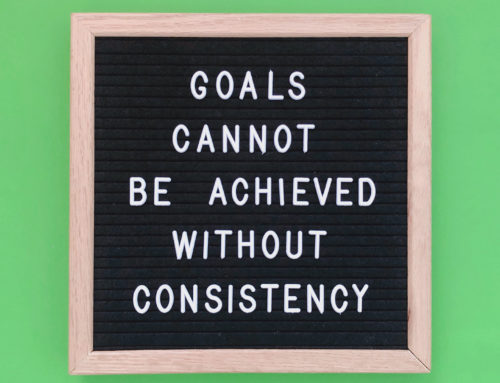A great session with Calvin Johnson of Westport Homes. We learned a ton of great stuff about how a real estate agent can work with new home builders and everyone come out happy.

Podcast Takeaways
- Communication keeps things smooth
- Not having a real estate agent does not mean the buyer can get more concessions
- There are options for faster closes on new home builds
Working With New Home Builders Podcast Transcript
Adam Small: Hello, and welcome to the Real Estate Marketing Minute. I’m your host, Adam Small. Today we’re in Monrovia, Indiana, and we’re with Calvin Johnson of Westport Homes. Hi, Calvin, how are you?
Calvin Johnson: I’m doing great. How are you?
Adam Small: Great, and we also have Kimberly Small with us. Hi, Kim.
Kimberly Small: Hi, how are you?
Adam Small: Doing great, thanks. So today we’re going to be talking about how real estate agents can work with new construction companies. That’s why Calvin’s here, and he’s going to tell us a little bit about himself.
Calvin Johnson: Okay. I am a New Home Consultant for Westport Homes, and the Monrovia community we’re at is Homestead. I am in my third year with this company, and how I got started with this is sales has been a big background for me. I went to college for a communication major. I got involved with many aspects with that. I was a radio DJ, then I moved into the public relations and sales side of things, and then, after a few different positions in the communications related field, I got contacted by somebody who worked for new home construction. I always thought that somebody needed to be licensed, like a realtor, to be involved with new home construction, yeah.
Adam Small: New home construction, right. Well, it would kind of make sense, right?
Calvin Johnson: It would because you’re selling homes, technically.
Adam Small: Right.
Calvin Johnson: They’re just like, “No, you just come in.” They had a position. I started off as a sales associate, so almost like a assistant position but you’re training to become somebody.
Adam Small: Getting-the-coffee guy?
Calvin Johnson: Yeah. Yeah, exactly. I was the organizer, I cleaned the offices, and really cut my teeth to get to where I am now as the consultant position where everybody wants to strive to be in the new home sales position. So that’s where I ended up here.
Adam Small: Great. So like you said, you thought that you needed to be licensed in order to work with new home construction, and you don’t. Does that create a little bit of tension between real estate agents and home builders, because they go through a lot of training, and they have continuing education, and there’s a lot that goes into being a real estate agent, so does that create some tension between you guys?
Calvin Johnson: Not so much. We create really strong relationships with our realtors whenever they come in. I was always taught to treat this almost like a retail when you go into a new home model office, because we have set hours, noon till 7:00, and we have to be there those set hours and act as the sales rep. But at the same time, there’s hardly any tension with that because the strong bond we share, we want to continue the sales with those reps as well. As somebody that is a real estate agent, they go through so much work to get licensed, and you would think that there was tension, whereas you walk into a new home construction company, looking for a job, and they’re just like, “Yeah, come on in, do your interview,” and you don’t have to go through those exams and things to get even qualified.
Adam Small: Right. So along those lines, you, as well as the realtors and the real estate agents, you both want happy customers. You don’t want somebody to come in a buy a home and then be dissatisfied for any number of reasons, right. So with that common goal, what do you do to make sure that you do have a good working relationship with agents?
Calvin Johnson: You keep them in the loop on everything. I always strive with a motto, the fortune’s in the follow up. Say the agent comes in with a customer, they’ve looked through 100 homes already, and it seems to be the going average lately. But, at the same time, when they come into our office and they end up seeing the fortune in what’s in new home construction at the time, they end up buying. You want to keep them through the process of groundbreaking to the construction phase, let them know that you care, not just about their customer but about them as well. That’s really important to me, as a salesperson, because it’s all about creating not just, you know, this is just a sale and we’re done with them. We want to create a relationship where the agent can come back in.
Adam Small: So it’s creating that genuine relationship there. Whether it be a friendship or a work relationship, it’s still genuine.
Calvin Johnson: Absolutely.
Adam Small: You’re honest, you’re upfront, you’re communicating what’s going on and making sure that everybody knows what’s what, right?
Calvin Johnson: Definitely. Absolutely.
Adam Small: Definitely. Great. Okay, so sometimes buyers come to you guys directly and sometimes a real estate agent will bring them to you, right? Some people, and I’m probably among them, I would think that coming to you guys directly would probably be better off for me. From a negotiation perspective, I may be able to get more out of you guys, or a lower sales price or something like that. Is that true or does it matter?
Calvin Johnson: Not necessarily true. You’re free to use a realtor at your disposal when you walk in. Basically, there’s a couple of different demographics when it comes to that, as well. When someone wants to work with an agent, a lot of times they still have a home to sell and they use that agent for that aspect, and then they need they help looking for something out there, something that isn’t necessarily a myth right now, and there’s a lot people that come in and tell me there’s low inventory out there, so-
Adam Small: Right. Right, it’s been flying off, which is part of why people are looking at so many homes right now, because they go and they look, and they take a day to decide, and somebody’s already bought it. You know, somebody’s put the offer in and it’s been accepted, right?
Calvin Johnson: Absolutely, and they go for maybe tens of thousands higher than the asking price because it’s a bidding war out there right now, and when a customer comes in, my first question with them is, are you currently working with a realtor? If they aren’t sure what they’re doing in terms of looking for a home because there’s nothing out there, I encourage that for them. I’m like, “Well, if you’d like to use a realtor, by all means, go ahead. It will probably help your process as well, but I’ll do everything in my power to help you out in the new home construction side of things.” It’s really up to them, and it’s not going to necessarily help or hurt them in any way.
Adam Small: So I’m not necessarily going to get more out of the new home build if I’m using a realtor, or less out of it if I’m using a realtor, right?
Calvin Johnson: Right. It’s basically, if you had a relationship with somebody when you walked in the door, keep on using them. I encourage it, especially if they know a lot about the new home construction phase. If they don’t, then more power to them, bring them in, too. I’d like to educate the realtor, as well, on the benefits of buying a new home versus preexisting, so yeah.
Adam Small: Right. Great.
Kimberly Small: So along with that, new home construction companies have a marketing budget and a budget that accounts for realtor fees in that, so it’s not taken out of the buyer’s pocket there, so …
Calvin Johnson: Right. Yeah. When a realtor is involved in the transaction, new home construction, we help them and give them commission on the current sale that is involved, and then we also, some new home construction companies also do programs with realtors if they sell homes with us, and sell a certain amount of homes. They do a tiered system and get more money out of it, the more you sell with new home construction, so some companies do that as well.
Kimberly Small: Okay. So you talked about, it’s been a seller’s market-
Calvin Johnson: IT has been.
Kimberly Small: … and there’s a lot of people that are in bidding wars and that kind of stuff, more so than … I mean, this is kind of a historical period for it being a seller’s market and-
Calvin Johnson: It really is.
Kimberly Small: … so that’s brought a lot of buyers that they … new home construction wasn’t even on their radar but they lose on the bidding wars, and so they’re looking at that as an option. Has that changed how you do things, or have you created more relationships with real estate agents because of that?
Calvin Johnson: I have, yes. A few of the sales I’ve made in the past three years involve agents in that aspect, where there’s, say, a home in Noblesville just got taken off the market the day they put an offer in, and they came in and wanted to see what product we had. I specialized in showing people the financing side and what benefits them on a monthly basis compared to what they could have done, say, renting. They see that, and the proof is in the pudding on that. So when you see a home, say, going for 180,000 and they see the monthly price on that, and they’re like, “This is way less, and I was feeling like I was throwing money away when I was renting,” that’s the big eye-opening factor for them, and the big sales factor for them. And, yeah, at the same time though, it’s very discouraging to see something that you thought you wanted out there, and somebody takes it right off your hands at the snap of a finger, so-
Kimberly Small: And you’re seeing that a lot. I hear that a lot from agents.
Calvin Johnson: They come in discouraged and it’s sad to see, but you’re also acting as that liaison in that, for, “Let me help you out here. Let’s see what we can do on our end.”
Kimberly Small: You talked about earlier the expertise of a real estate agent and having to go through their licensing and get CE credits and all that, and I’m sure you have a lot of training that you have to do in order … just to get up to par and know a lot more about construction and the process, and have that expertise that you can bring to the table. So somebody, an agent that is, maybe they just, in this market, they’ve had a couple of new home constructions and they’re like, “I really want to focus on working on new construction,” what should they know? What should they learn in order to be an asset to both a builder and to their client that is looking for new construction?
Calvin Johnson: There’s a couple of different things and the couple of different things are very major as well. When you buy a preexisting, a lot of time it’s not under warranty. A lot of new home construction is. It could be a 10-year structural warranty. Knowing more about the warranty programs that new builders have to offer is especially important because when you buy a home you don’t want to walk in and be like, “It’s all yours,” and if something breaks it’s all on you from then on. They want to come in and be like, “Okay, the warranty package is here, and we can see what’s-
Adam Small: It’s just that little extra bit of assurance, right?
Calvin Johnson: Yes, and that is a key factor, and then the timeframe it takes to build is actually, weather permitting, takes a lot less than people expect, depending on the size of the home. It could vary from four to six months, usually. A lot of people think it’s a lot longer than that. But at the same time, if you do your job right in new home construction and you keep that realtor in the loop on everything, they’ll see, photo by photo, the progress of what’s being done. Indiana is known for its wacky weather. I mean, it’s not even 50 degrees right now and we’re mid-October. But at the same time, realtors, I trust them on their opinion. I know not even half of what they do at this point, but they’re so knowledgeable to know the price of land, and when it comes to the process of building a brand new home.
Kimberly Small: So in the seller’s market, you were saying too, if somebody does have a house to sell and then they’re looking at new construction, four to six months, are there any … I know a lot of people find themselves either with family members or in apartments temporarily while their homes are being built. Is there anything that home builders or realtors can do to help with that, provide resources as far as options that they might consider for those time periods, or … ?
Calvin Johnson: Yeah, great question. A lot of times that it a factor, where … I tell the customer, too, it really varies on how fast the home’s going to sell. If you’re listing a home, it could take weeks to maybe hours, you just don’t know. One time I sold to somebody that was listing their home, they were like, “We’ve still got some things to do with it,” but they still listed it the next day. Within eight hours it had been accepted, and I was like, “I told you.” You just never-
Adam Small: Don’t have to do those things now, huh?
Calvin Johnson: You don’t, and that’s a very good thing, but it’s also a very stressful thing if you’re building a brand new home. So there’s a couple of factors to put into play with that. The good benefit of building new is there’s a couple of options. You can build, completely build your own home, choose your features you want, and do that four to six month timeframe waiting period after your home’s been accepted. But the thing about that is, that makes that stressful on people, is they do have to find someplace to go once they close on their home, so they either do … Yeah, they absolutely can move in with the in-laws, or they can move in with family, or they rent something month to month.
Calvin Johnson: If you’re a renter, as well, I always say, can you go month to month after your lease expires, and different factors like that. Some places are very strict on not doing that because it doesn’t benefit them too much and they want to give that to the next person up, but at the same time, some places are very relaxed with it. Yeah, up until the time of closing, you can do that.
Calvin Johnson: Then there’s also a factor where we build quick move-in homes, where, I like to call it the model without the furniture. It’s where the sales reps at the community choose the features for the homes based on community-wide preferences, things like that, and it’s at a set price already. So they have less time to think about moving in with somebody until closing, that home could be already ready to go, and they just listed and sold their home, they could move in in two months at that factor. And if they’re a cash buyer, then they can move in-
Adam Small: Then it’s a lot faster, right?
Calvin Johnson: Days, yeah, if it’s that ready. So there’s a couple of different factors with that.
Kimberly Small: So agents and even builders, maybe if somebody’s moving to a new area, maybe have relationships with short term rentals and places that they might be able to suggest to those people. I feel like I’ve had a lot of friends and they’re, “Okay, we’ve sold our house and our new one’s not ready, and going to the in-laws is not an option, so anybody know any short term properties that we can move into?” So I would assume that having those relationships with short term housing and stuff like that would be helpful for an agent to have.
Calvin Johnson: Absolutely.
Kimberly Small: So are agents paid their typical commission on new construction, and do they have to be approved with the home builder in advance, or is it just if they bring somebody to the table, then … and it may vary from builder to builder, as well.
Calvin Johnson: It may vary from builder to builder. I mean, typically, with us, it’s 3%. I don’t know what the going rate with that is, with different builders at the same time, but like I mentioned earlier, some builders have different programs they offer, the more sales you get, the more money you get, too. So it’s like a club that you join and it renews every year. That’s one way of doing that. You don’t have to sign up to be a preferred realtor with new home construction. If you’re involved with a client, we accept anybody at that point.
Kimberly Small: Okay.
Adam Small: Cool.
Kimberly Small: You mentioned that you have a program, like a tiered level and stuff like that, so are they automatically, the first time they bring somebody, they’re already initiating into that program and as they continue to bring new sales to you?
Calvin Johnson: Great question. A lot of times you’d have to sign up for it online. It’s not, like, a fee or anything you have to do. It’s more like application you fill out online, then you become a member, and then after that first sale, then the tiers start coming into play, too.
Kimberly Small: Okay.
Adam Small: Cool. So aside from bringing in potential buyers, right, what else can an agent do to be a valuable asset to a builder?
Calvin Johnson: Great question. One of the important things is just stay involved and in the know with what the area’s like. A good key for that is coming into our model and scheduling a realtor open house, letting customers that they’re involved with or clientele know about the product.
Adam Small: So the agents can host an open house in your sample homes, then?
Calvin Johnson: Absolutely.
Adam Small: Nice.
Calvin Johnson: We’ve done it many times before, and they can show the product, the quick move-in inventory. There could be communities that have six or seven different quick move-ins and they want to show them all at the same time, so what better way, aside from a sales rep, to have a realtor come in and show a clientele as well?
Adam Small: Right, absolutely. What about co-marketing? Do you guys do any co-marketing with real estate agents?
Calvin Johnson: At this time, not as much. It varies, person to person, builder to builder. A lot of people, a lot of sales reps, have that preferred realtor that they use for it, so just getting my feet under me at this new community, I’m finding anybody and everybody at this point, and it’s really varied by the person in that.
Adam Small: Okay, cool. What about mortgage agents, the ones that want to work with new construction loans? Do you guys work with them? I mean, I guess you could do referrals and stuff like that, but do you have people that you work with on a regular basis in that area, as well?
Calvin Johnson: We do, yes. We have more of a preferred agent program for that. We have a couple of different agents we use, builder to builder. They do, as well. Some builders even have their own agents in-house and they help out. But also, the benefit of being a sales rep is you get trained on the financing side, to give people not so much a worst case scenario, but, “Let me show you-
Adam Small: Well, you mentioned earlier, that was one of the things that you focused on insofar as showing them the benefits of home ownership versus renting, right.
Calvin Johnson: Right, and a lot of times I tell them, you know, “I can show you month to month what it could look like based on the price that we priced out today. I’m not the lender, though. They could give you a completely different number based on smaller factors that we haven’t accrued to [crosstalk 00:18:21]-
Adam Small: Well, and until you get approved with a certain interest rate, it could change drastically, right?
Calvin Johnson: Right. It changes by the day, and especially out here in Monrovia, it’s USDA, and that’s a different loan compared to a lot of different areas, as well. It has a zero down program and a lot of people don’t know about that when they come in here, but it varies by the area. Indiana has a couple of different areas that have USDA, VA. We do every type of loan program here, and-
Adam Small: So there’s no restriction on new construction buying insofar as the loans go?
Calvin Johnson: Right.
Adam Small: You’ve got VA programs, you’ve FHA, and all that, right?
Calvin Johnson: Yeah.
Adam Small: Cool.
Calvin Johnson: And our agents are, I mean, of course they’re specialized in showing them the exact one. Some customers think go in there with something in mind, exactly what they’re thinking about in a loan, and then the loan officer gets in touch with them and says, “Hey, I can get you set up [crosstalk 00:19:20]-
Adam Small: We can do better, yeah.
Calvin Johnson: … lower interest rate-
Adam Small: Great.
Calvin Johnson: … or PMI.
Adam Small: Yeah, that’s great. All right, so before we wrap up, do you have anything else that agents should know when it comes to new construction, or anything else that you want to address, misconceptions or anything like that?
Calvin Johnson: A final remark is just, new home construction is more like … it’s on the rise lately, with the amount of inventory that’s, I don’t want to say lacking out there, but at the same time, it’s very competitive. It’s a competitive market out there and new home construction is growing by the day. You see the woodwork go up every single day around Indianapolis, so there’s multiple places and multiple outlets to go. I guess my advice to someone, a realtor that’s new to the new home construction phase, is if you have any questions, stop by an office, and anywhere-
Adam Small: Just talk to somebody, right?
Calvin Johnson: … they’re knowledgeable.
Adam Small: Yeah.
Calvin Johnson: They’re knowledgeable in what new home construction is, the benefits of new home construction, the product, and, I mean, you’re going to be the first one moving into that home, too, so you want to get what you want at that point.
Adam Small: Exactly. Exactly. Kim, do you have anything else?
Kimberly Small: I think that’s it.
Adam Small: All right.
Kimberly Small: It’s been a pleasure having you.
Calvin Johnson: Thanks for having me.
Adam Small: Thanks for joining us. Thanks for listening, to you guys, and we’ll see you next time.







